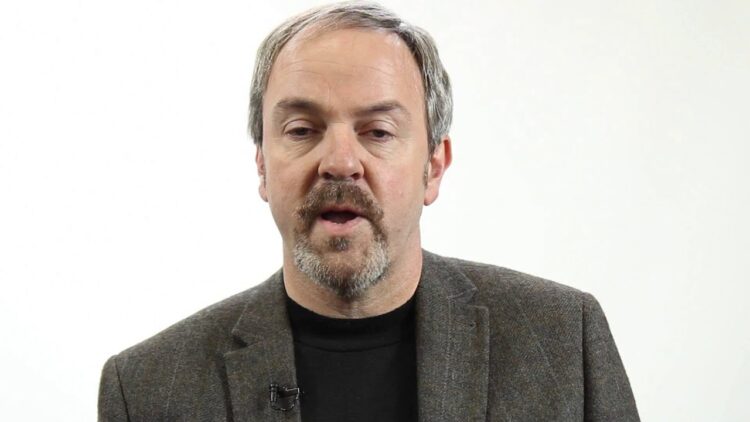By Tony O’Riley-
Professor Carl Heneghan, the director of the Centre for Evidence-Based Medicine at Oxford, told the BBC Today programme the country was in “deep, deep trouble” if lockdowns were repeated.
He added, “this is as good as it gets when you consider the predictable rise in winter pathogens at this time of the year”.
His intervention comes after a number of scientists, whose credibility this organisation questions, have called for another lockdown, so shortly after the leaks of ministers partying last christmas(2020) and ignoring the coronavirus laws they set for the country to follow.
Those pushing for a lockdown are likely to have been put up to it for selfish reasons of their own- the spread of the omicron variant is not a good enough reason to push for another lockdown, after the Uk has had three of such lockdowns in the past year.
Options said to have been presented to Boris Johnson include using non-binding guidance to urge caution, new restrictions on social gatherings, or even a full circuit-breaker lockdown.
Modelling from the government’s SAGE panel of experts suggests more stringent restrictions need to be brought in soon in England to stop 3,000 hospital admissions a day, reports the BBC.
Professor Heneghan deals with evidence based science, and is dissatisfied with the measures being considered because the data provides unsatisfactory grounds for another lockdown.
He said “you have to have a balanced proportion when you get the models”, saying the data on Omicron remained unclear.
He added that he believed the government should trust people to “moderate their behaviour” calling it the “only sustainable policy”.
Early data from ongoing research shows that the British public has lost faith in the government’s direction relating to restrictions, even if some measures may actually be necessary to curb the spread of the omicron virus. The long list of ministers who have flouted the rules, does very little to convince the masses that these people actually believed the measures given to the public were necessary.
Mayor Sadiq Khan declared a major incident in a bid to improve co-operation between public bodies to tackle the wave.
He told the Andrew Marr show on Sunday that he favoured tighter rules sooner rather than later, but that people should be able to enjoy Christmas.
“I think we should be able to celebrate Christmas safely,” he said.
“But I think sooner rather than later, we’re going to have to look at social distancing, household mixing, because if we don’t, the number of cases is only going one way.”
Khan, who has always been in favour of lockdowns and social distancing, but lacks the professional credibility of Carl Heneghan.
Heneghan who is a GP on the frontline, said he did not believe hospitals were as overwhelmed as was being stated.
He pointed out i9n an article for the MailOnline that the modelling used to justify Health Secretary Sajid Javid’s claim that we are already seeing 200,000 new Omicron infections a day has now been abandoned by health officials.
He said further modelling was criticised for failing to consider evidence from South Africa that is showing Omicron is causing fewer deaths and hospitalisations even among the oldest and most vulnerable than previous versions of the virus.
”A great deal of the apparent rise in Covid cases is actually tied to a major increase in the amount of testing”, he said, pointing out that On December 7, Britain conducted roughly one million tests. By December 15, this had risen to 1.63 million – a rise of nearly two-thirds in eight days.
”It didn’t feel as though we are overwhelmed with Covid. Coronaviruses are seasonal in the Northern Hemisphere, as are several other respiratory pathogens, so it shouldn’t be surprising if hospital admissions are high.
”It would undoubtedly help politicians and their advisers to see the reality of the NHS front line, instead of listening to focus groups and staring at graphs. In the real world, it’s clear people have changed their behaviour in response to the change in case numbers and the guidance they have received”, he added.
He stated that analysis of people’s movements shows retail activity is down by 25 per cent in Greater London and that use of public transport and attendance at the workplace is down by 40 per cent, citing this as one reason why inflated projections become so rapidly outdated – without continual adjustment, they are misleading”, he stated.
Heneghan’s comments says it all. He has the expertise and necessary experience to be trusted, not the noise of those probably drunk on power and influence.
Heneghan’s comments were featured in just three publication at the time of writing-The Mail Online, The Daily Telegraph, and The Evening Standard.
There have been suggestions that other mainstream publications have failed to feature his views and expertise because they have a separate agenda.
That view is imperfect because many publications chose what topics which have already been covered needs to be repeated in their own news outlet, though Heneghan’s views would have been heard by practically all news outlets on the Today programme.
Some critics closely examining media coverage of lockdown proposals believe various news outlets make a conscious decision not to repeat certain news, and it is the heart of these decision where broader analysis can be made.




